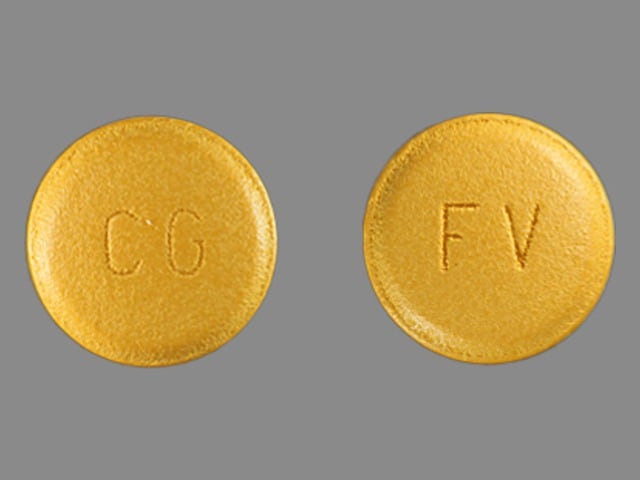What is Femara used for?
- Femara is used to treat breast cancer in women after menopause (change of life).
- Femara may be given to you for other reasons. Talk to your doctor.
Before taking Femara, tell your doctor:
- If you are allergic to Femara; any part of this medicine; or any other drugs, foods, or substances. Tell your doctor about the allergy and what signs you had.
- If you are pregnant or may be pregnant. Do not take Femara if you are pregnant.
- If you are breast-feeding. Do not breast-feed while you take Femara and for 3 weeks after your last dose.
This is not a list of all drugs or health problems that interact with this medicine.
Tell your doctor and pharmacist about all of your drugs (prescription or OTC, natural products, vitamins) and health problems. You must check to make sure that it is safe for you to take Femara with all of your drugs and health problems. Do not start, stop, or change the dose of any drug without checking with your doctor.
What are some things I need to know or do while I take Femara?
- Tell all of your health care providers that you take Femara. This includes your doctors, nurses, pharmacists, and dentists.
- Avoid driving and doing other tasks or actions that call for you to be alert until you see how Femara affects you.
- This medicine may cause weak bones. This may happen more often if used for a long time. This may raise the chance of broken bones. Call your doctor right away if you have bone pain.
- Have a bone density test as you have been told by your doctor. Talk with your doctor.
- Have blood work checked as you have been told by the doctor. Talk with the doctor.
- Take calcium and vitamin D as you were told by your doctor.
- If you are 65 or older, use Femara with care. You could have more side effects.
- This medicine may affect fertility. Fertility problems may lead to not being able to get pregnant or father a child.
- This medicine may cause harm to the unborn baby if you take it while you are pregnant.
- If you are able to get pregnant, a pregnancy test will be done to show that you are NOT pregnant before starting Femara. Talk with your doctor.
- Use birth control that you can trust to prevent pregnancy while taking Femara and for at least 3 weeks after your last dose.
- If you get pregnant while taking Femara or within 3 weeks after your last dose, call your doctor right away.
How is Femara best taken?
Use Femara as ordered by your doctor. Read all information given to you. Follow all instructions closely.
- Take with or without food.
- Keep taking Femara as you have been told by your doctor or other health care provider, even if you feel well.
- Take Femara at the same time of day.
What do I do if I miss a dose?
- Take a missed dose as soon as you think about it.
- If it is close to the time for your next dose, skip the missed dose and go back to your normal time.
- Do not take 2 doses at the same time or extra doses.
What are the side effects of Femara that I need to call my doctor about immediately?
WARNING/CAUTION: Even though it may be rare, some people may have very bad and sometimes deadly side effects when taking a drug. Tell your doctor or get medical help right away if you have any of the following signs or symptoms that may be related to a very bad side effect:
- Signs of an allergic reaction, like rash; hives; itching; red, swollen, blistered, or peeling skin with or without fever; wheezing; tightness in the chest or throat; trouble breathing, swallowing, or talking; unusual hoarseness; or swelling of the mouth, face, lips, tongue, or throat.
- Signs of high blood pressure like very bad headache or dizziness, passing out, or change in eyesight.
- Signs of a urinary tract infection (UTI) like blood in the urine, burning or pain when passing urine, feeling the need to pass urine often or right away, fever, lower stomach pain, or pelvic pain.
- Swollen gland.
- Chest pain or pressure.
- Shortness of breath.
- Vaginal bleeding that is not normal.
- Low mood (depression).
- Swelling.
- Not able to pass urine or change in how much urine is passed.
What are some other side effects of Femara?
All drugs may cause side effects. However, many people have no side effects or only have minor side effects. Call your doctor or get medical help if any of these side effects or any other side effects bother you or do not go away:
- Feeling tired or weak.
- Hot flashes.
- Headache.
- Dizziness.
- Upset stomach or throwing up.
- Cough.
- Back pain.
- Muscle or joint pain.
- Constipation.
- Diarrhea.
- Night sweats.
- Sweating a lot.
- Not able to sleep.
- Weight gain or loss.
- Belly pain.
- Hair loss.
These are not all of the side effects that may occur. If you have questions about side effects, call your doctor. Call your doctor for medical advice about side effects.
You may report side effects to the FDA at 1-800-332-1088. You may also report side effects at https://www.fda.gov/medwatch.
If overdose is suspected:
If you think there has been an overdose, call your poison control center or get medical care right away. Be ready to tell or show what was taken, how much, and when it happened.
Femara Images
How do I store and/or throw out Femara?
- Store at room temperature.
- Store in a dry place. Do not store in a bathroom.
- Keep all drugs in a safe place. Keep all drugs out of the reach of children and pets.
- Throw away unused or expired drugs. Do not flush down a toilet or pour down a drain unless you are told to do so. Check with your pharmacist if you have questions about the best way to throw out drugs. There may be drug take-back programs in your area.
Consumer information use and disclaimer
- If your symptoms or health problems do not get better or if they become worse, call your doctor.
- Do not share your drugs with others and do not take anyone else's drugs.
- Some drugs may have another patient information leaflet. Check with your pharmacist. If you have any questions about Femara, please talk with your doctor, nurse, pharmacist, or other health care provider.
- If you think there has been an overdose, call your poison control center or get medical care right away. Be ready to tell or show what was taken, how much, and when it happened.
This information should not be used to decide whether or not to take Femara or any other medicine. Only the healthcare provider has the knowledge and training to decide which medicines are right for a specific patient. This information does not endorse any medicine as safe, effective, or approved for treating any patient or health condition. This is only a brief summary of general information about this medicine. It does NOT include all information about the possible uses, directions, warnings, precautions, interactions, adverse effects, or risks that may apply to Femara. This information is not specific medical advice and does not replace information you receive from the healthcare provider. You must talk with the healthcare provider for complete information about the risks and benefits of using this medicine.





